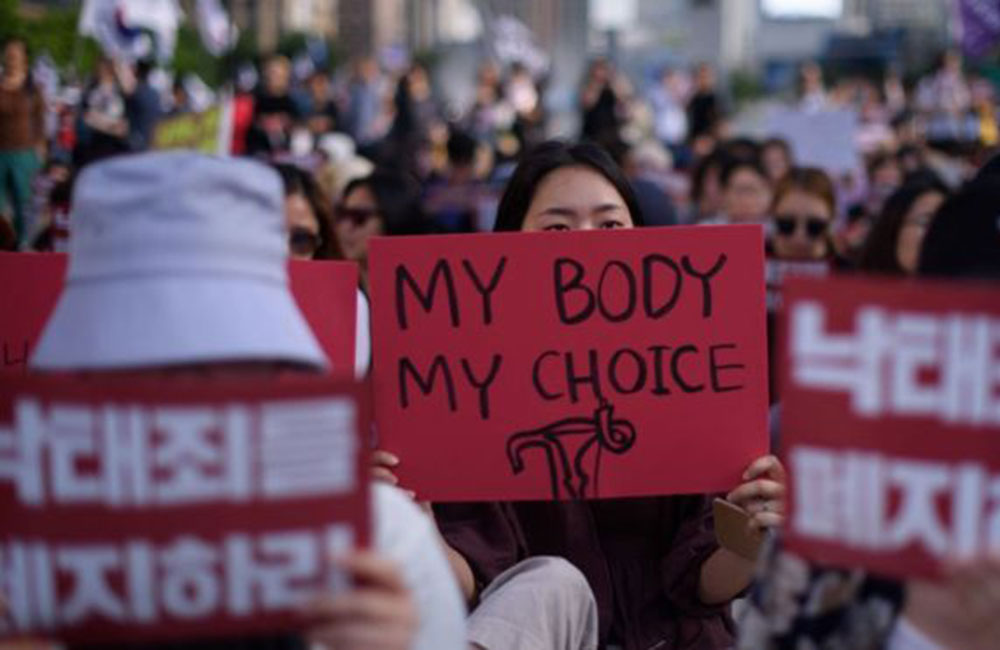South Korea's ban on abortion has been ruled unconstitutional in a historic court decision. The country's constitutional court ordered that the law must be revised by the end of 2020.
Under the 1953 ban, women who procured abortions could be fined and imprisoned, except in cases of rape, incest or risk to their health. South Korea is one of the few developed countries where abortion is criminalised.
In 2017, an opinion poll found just over 51.9% favoured ending the ban. The law was reviewed after a challenge from a female doctor, who said the ban endangered women and limited their rights.
The BBC's Seoul Correspondent Laura Bicker says the push for change comes from a burgeoning movement fighting for women's rights in South Korea.
Campaigners seeking an end to the law say it is part of a broader bias against women in the country.
South Korea is home to a large number of evangelical Christians, however - and some want abortion to remain illegal because they say it forces women to think deeply about the decision.
How did activists react?
Hundreds of protesters from both sides of the debate gathered outside the court ahead of the ruling, separated by police.
While pro-choice activists celebrated the announcement, anti-abortion campaigners were left in tears.
How widespread is abortion in South Korea?
Despite the restrictive law, abortions are widely accessible in South Korea and can be carried out safely. A survey last year found that one in five women who had been pregnant had had an abortion, and just 1% fell under the country's legal exemptions.
An estimated 50,000 abortions were carried out in South Korea in 2017, compared with government estimates of about 169,000 cases in 2010.
This fall is largely attributed to improvements to contraceptive services and products, which are now widely available, and a better understanding of birth control.
(BBC)

Leave your comments
Login to post a comment
Post comment as a guest